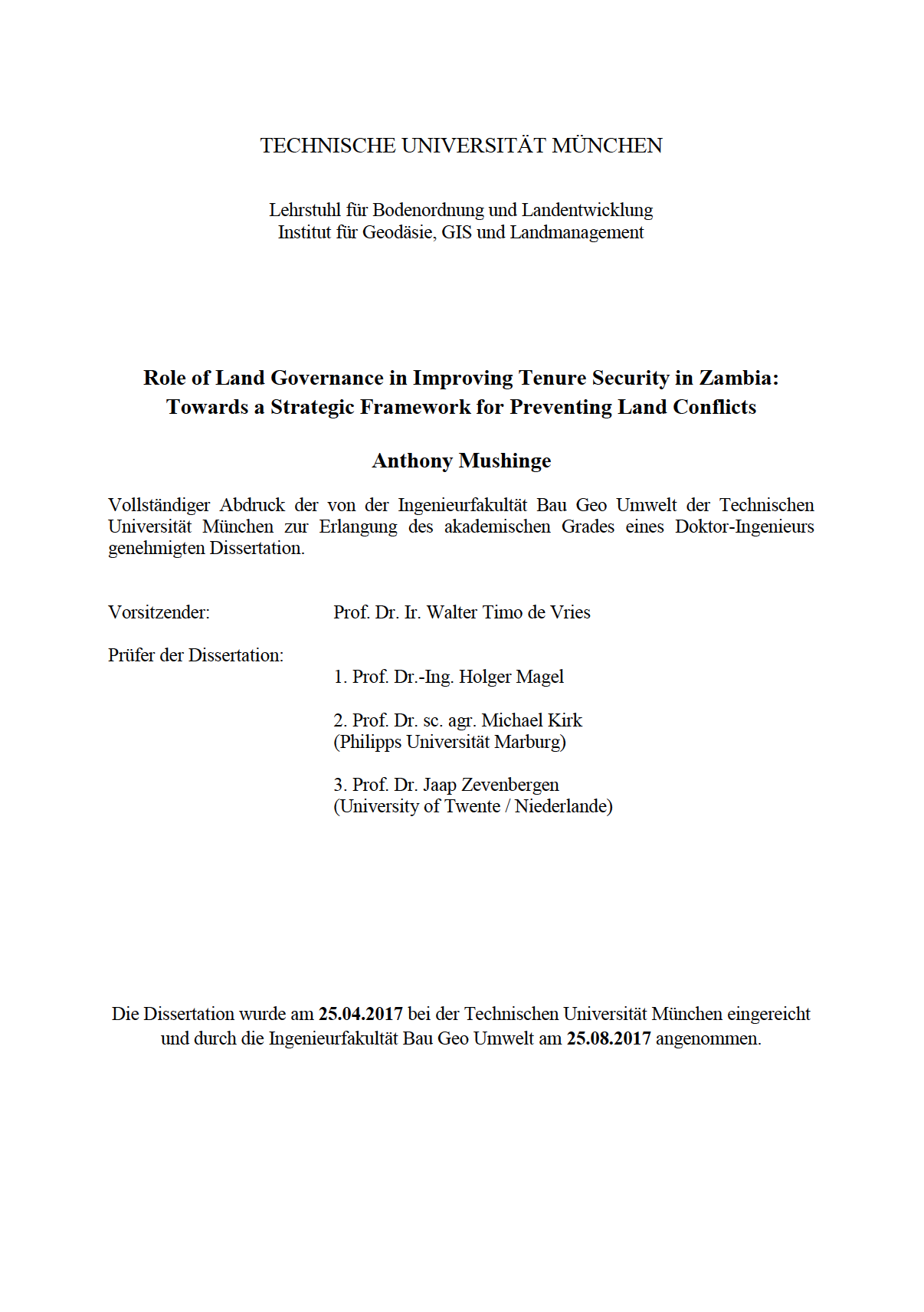Resource information
Zambia is one of the countries in Africa with a high frequency of land conflicts. The conflicts over land lead to tenure insecurity. In response to the increasing number of land conflicts, the Zambian Government has undertaken measures to address land conflicts, but the measures are mainly curative in nature. But a conflict sensitive land governance framework should address both curative and preventive measures. In order to obtain insights about the actual realities on the ground, based on a case study approach, the research examined the role of existing state land governance framework in improving tenure security in Lusaka district, and established how land conflicts affect land tenure security.
The research findings show that the present state land governance framework is malfunctional which cause land conflicts and therefore, tenure insecurity. The research further reveals that state land governance is characterised by defective legal and institutional framework and inappropriate technical (i.e. land use planning, cadastre and registration, and land allocation procedure) and operational (i.e. funding, human resource and equipment) issues. According to research findings, presently curative measures (though dysfunctional) exist but there are no preventive measures at all. Thus, the present land governance framework is unable to prevent state land conflicts and subsequently tenure insecurity. As a result there is a high incidence of state land conflicts and high degree of tenure insecurity in Lusaka District. Land conflicts and tenure insecurity have implications such as loss of life and damage to property, high litigation costs, decrease food production, deny the government to raise revenue, and hinder investment.
In order to address the prevailing problems, the study suggests a framework for improving state land governance in Zambia and suggests the preconditions necessary to adopt the framework in Zambia in particular and in other African countries in general.

